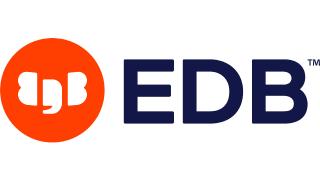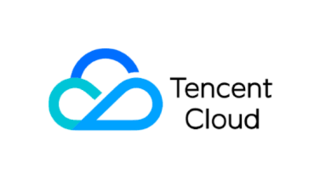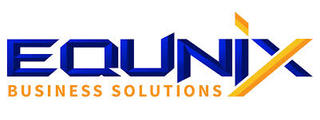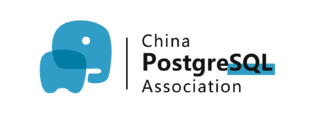
CHINA 2020 And PGConf.Asia 2020
In 2020, Both PostgresConf.CN and PGConf.Asia will host together, for the very first time, a joined online PostgreSQL conference with additional offline sessions hosted at several reputable University campus in China. It will be one of the biggest PostgreSQL conferences ever hosted in Asia.
This conference will be an Online conference together with several offline sites in several University campus in China.
PostgresConf.CN is an annual conference held by the China PostgreSQL Association for PostgreSQL users and developers. It is also one of the conference series held by PostgresConf Organization. PostgreConf.CN 2019 took place in Beijing, it was very well attended by PostgreSQL users and community members across the globe.
PGCONF.Asia is also an annual PostgreSQL event that took place in Bali Indonesia in 2019, it was a continuation of the PGCONF.Asia event that took place in Tokyo, Japan in 2018. The first PGCONG.Asia conference took place in 2016 in Tokyo, this conference acts as a hub of PostgreSQL related development and technical discussion among PostgreSQL users and developers in the region as well as experts from around the globe.
HOME
Some of our speakers
Conference Highlights
Will Postgres Live Forever?
This presentation explains how open source software can live for a very long time, and covers the differences between proprietary and open source software life cycles. It also covers the increased adoption of open source, and many of the ways that Postgres is innovating to continue to be relevant.
Wonderful PostgreSQL!
In this talk I would like to introduce the history of PostgreSQL: before it was born, how it was born and how it has evolved, being supported by many great contributors. I think this talk will be interesting for especially young PostgreSQL users who do not know the history of PostgreSQL. This talk was first presented in 2017 in Japan for local PostgreSQL community. I will follow up the recent information to update the slide (and of course translate into English). If you are interested,...
Top 10 Mistakes When Migrating From Oracle to PostgreSQL
As more and more people are moving to PostgreSQL from Oracle, a pattern of mistakes is emerging. They can be caused by the tools being used or just by not understanding how PostgreSQL is different than Oracle. In this talk, we will discuss the top mistakes people generally make when moving to PostgreSQL from Oracle and what the correct course of action.
Postgres and the Artificial Intelligence Landscape
Artificial intelligence, machine learning, and deep learning are intertwined capabilities that attempt to solve problems that defy traditional computational solutions --- problems include fraud detection, voice recognition, and search result recommendations. While they defy simple computation, they are computationally expensive, involving computation of perhaps millions of probabilities and weights. While these computations can be done outside of the database, there are specific advantages of...
large scale time series database based on PostgreSQL for PB scale data
With the rapid growth of IoT and IIoT, time series data becomes the fastest growing data and bring new challenges to users. Existing technologies are either unable to handle PB scale data or are slow in terms of performance or devops. This topic will introduce a new time series database based on PostgreSQL which is linear scalable to handle PB+ data with great performance, fully ACID compliance and standard SQL.
Speeding Up Analytic Queries by Sharing Commonalities
Analyzing data plays an important role in business and fast query processing is the key. A method for significantly speeding up analytic queries will be presented in this talk that urges sharing of commonalities among queries. Analyzing large amounts of data that is generated in corporate business activities and feedbacking the results for the next action has gained importance. This type of analysis is referred to as Business Intelligence (BI). A type of UI to it, BI dashboards are widely...
Equnix Data Integration Management, an Automated High Performance ETL Tool for PostgreSQL
Doing migration or synchronize data from multiple data sources might be confusing and bothersome, especially from different RDBMS or data format. To managed such activity, ETL Process is the common mechanism and tool, but there is no automated yet high performance tool before. Equnix Data Integration Management (EDIM) comes to the rescue, as a lightweight tools and small memory footprint, running in multi-process way. EDIM is an ETL Tools that is built using C application, very handy to...
A Deep Dive into PostgreSQL Indexing
Indexes are a basic feature of relational databases, and PostgreSQL offers a rich collection of options to developers and designers. To take advantage of these fully, users need to understand the basic concept of indexes, to be able to compare the different index types and how they apply to different application scenarios. Only then can you make an informed decision about your database index strategy and design. One thing is for sure: not all indexes are appropriate for all circumstances,...
Database Migration from Oracle Exadata to PostgreSQL
Migrate Database from Exadata X7 1/8 2 Nodes RAC to PostgreSQL 12.4: Critical OLTP System Peak Transaction around 400 TPS System accessed from million of Mobile devices Critical part: Searching available seats on the route Current workload most likely 80% READ, 20% WRITE PostgresQL able to scale well for READS We plan to have some slaves (Synchronous SR) HA-proxy in front of them
The Changing Landscape of Open Source Databases
In the current technology landscape, we have a lot of great innovation happening especially when it comes to Database Technology. A few examples include introducing new data models such as time series or graph, which focus on solving SQL at hyper-scale problem, this has been an elusive solution and scale was becoming synonymous with NoSQL environments. We now have a new Cloud-Native database design coming to market using the power of Kubernetes as well as employing Serverless concepts. In...
Backup Best Practices with pgBackRest
Backups are a critical part of any enterprise database solution but they are often done poorly or skipped altogether, which can lead to data loss in the event of hardware failure or some other disaster. With the proper tools and procedures data loss can be minimized or entirely avoided, saving valuable enterprise data and time. In this talk we'll cover database backup best practices and how to implement them with pgBackRest, including: WAL archiving Backup frequency and...
17 Things Developers Need to Know About Databases
Most applications use databases, yet many fail to follow even the most basic best practices causing poor performance, downtime and security incidents. In this presentation, we will look into the foundational best practices you as a Developer should know about databases, with particular focus on the most popular Open Source Databases - MySQL, PostgreSQL, and MongoDB. Introduce the challenge between developers and database operations often existing in an organization Highlight the...
Databases, Containers, and the Cloud
Containers and the cloud are all the rage as companies seek new efficiencies and flexibility. While they are very popular, database use of these facilities is still growing. This talk explores their benefit for database deployments.
Tips and Tricks with Amazon RDS for PostgreSQL
Managed database services are popular for many PostgreSQL users. In this session we look at how best to configure Amazon RDS for PostgreSQL and also look at common user operations of PostgreSQL using Amazon RDS. We will also look beyond common user operations and into some specific optimizations related to upgrade, logical replication, performance, and reducing downtime.
Purpose Built Data Types
When designing applications, the database schema is usually an afterthought. When the time comes to finally create the tables, developers normally just use a few base data types, like integers, varchars and timestamps, but PostgreSQL can do more. PostgreSQL's architecture allows for easy extension of data types. In this talk, we will explore some of PostgreSQL's purpose built data types that can reduce the amount of development needed in the application while increasing performance.
All about PostgreSQL Security.
PostgreSQL provides different levels of security. This talk will cover all the available security techniques used in PostgreSQL 13. We’ll look at client-side security (LibPq, JDBC) through to server-side security. It will cover all supported authentication methods and the pros and cons of all these methods. Some of the key features of the talk are: - Introduction to Cryptography - SSL, TLS, GSSAPI, and OpenSSL - Client-Side Encryption - Securing Authentication - Securing Data on the disk -...
What next in Logical Replication?
Logical replication has been there since 10.0 and with each release, it is getting better. This talk will start with the basic architecture of Logical replication in PostgreSQL and then cover the various ways in which it can be helpful to users. One of the shortcomings of logical replication as compare to physical replication is that currently, it allows the transaction to be replicated only once it is committed. This can create a large apply lag on the subscriber side for long-running...
The Way for Updating Materialized Views Rapidly
Materialized view is a feature to store the results of view definition queries in DB in order to achieve faster query response. However, after base relations are modified, view maintenance is needed to keep the contents up to date. REFRESH MATERIALIZED VIEW command is prepared for the purpose, but this has to recompute the contents from a scratch, so this is not efficient in cases where only a small part of a base table is modified. Incremental View Maintenance (IVM) is a technique to...
Tune your Linux Box, not just PostgreSQL
PostgreSQL is one of the leading open-source databases. Out of the box, the default PostgreSQL configuration is not tuned for any particular workload. The default configuration is designed in such a way that PostgreSQL can run on any system using minimum resources. Consequently, a default installation of PostgreSQL does not give optimum performance on the high-performance machine because it is set up to use all available resources. PostgreSQL provides mechanisms that allow you to tune...
A couple of new features towards the postgres-based sharding
Sharding is a challenge for PostgreSQL developers. It is general purpose tool to achieve query speedup and database scalability. Wherein, PostgreSQL architecture is not ideal for managing relational data in shared-nothing computing architecture. Nowadays, hardly anyone can say with confidence what a practically valuable implementation of sharding in PostgreSQL will looks like. The Development of sharding is moving forward in small steps across hot discussions. In this presentation i want to...
Program
AsiaChina2020 has the most awesome program ever! See rock-star speakers cover the topics of
Migrations
Top 10 Mistakes When Migrating From Oracle to PostgreSQL by Jim Mlodgenski
Database Migration from Oracle Exadata to PostgreSQL by Ujang Jaenudin
Equnix Data Integration Management, an Automated High Performance ETL Tool for PostgreSQL by Lucky Haryadi
Case Study
Multi-SQL: Development and Practice of Multimodal Data Intelligent Management System by China PostgreSQL Association
Cost aware data replica management for cloud native database by China PostgreSQL Association
The Ultimate Data Warehouse System by Lucky Haryadi
Minister of Industry and Information Technology Speech by China PostgreSQL Association
Security
Understand TLS Features as an administrator of PostgreSQL Server by Cary Huang
All about PostgreSQL Security. by Dr. Ibrar Ahmed
Cloud
Databases, Containers, and the Cloud by Bruce Momjian
Tips and Tricks with Amazon RDS for PostgreSQL by Jignesh Shah
Dev and Ops
Purpose Built Data Types by Jim Mlodgenski
PostgreSQL HA with Pgpool-II and whats been happening in Pgpool-II lately.... by Muhammad Usama
Backup and Restores
Backup Best Practices with pgBackRest by David Steele
Performance
Optimizing queries involving partitioned tables by Ashutosh Bapat
Scaling PostgreSQL with persistent memory by Naresh Kumar Inna
Speeding Up Analytic Queries by Sharing Commonalities by Yuya Watari
A Deep Dive into PostgreSQL Indexing by Dr. Ibrar Ahmed
A couple of new features towards the postgres-based sharding by Andrey Lepikhov
Tune your Linux Box, not just PostgreSQL by Dr. Ibrar Ahmed
Everything about Postgres
PostgreSQL High Availability: The Considerations and Candidates by Hamid Akhtar
Greenplum's open source journey: ecology and community leadership by Lei Feng
Research and Development of Unified model and Language of Knowledge Graph Database Management System by China PostgreSQL Association
2020 PG China Technology Selection Release Ceremony by China PostgreSQL Association
What next in Logical Replication? by Amit Kapila
Better late then never - Stored Procedures in PG 11 by Ahsan Hadi
The Way for Updating Materialized Views Rapidly by Yugo Nagata
PostgreSQL Global Certification by Julyanto SUTANDANG
Deploying PostgreSQL Cluster with Query Load Balancing and Monitoring Capabilities on Kubernetes by Bo Peng
large scale time series database based on PostgreSQL for PB scale data by Yandong Yao
Postgres and the Artificial Intelligence Landscape by Bruce Momjian
Will Postgres Live Forever? by Bruce Momjian
The Changing Landscape of Open Source Databases by Peter Zaitsev
17 Things Developers Need to Know About Databases by Peter Zaitsev
Wonderful PostgreSQL! by Tatsuo Ishii
Where to stay in Beijing
We recommend these accommodations for your visit.








